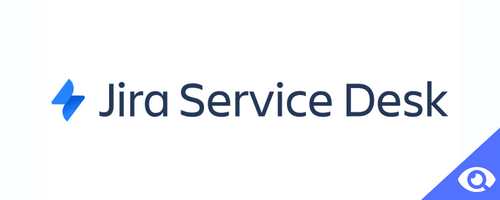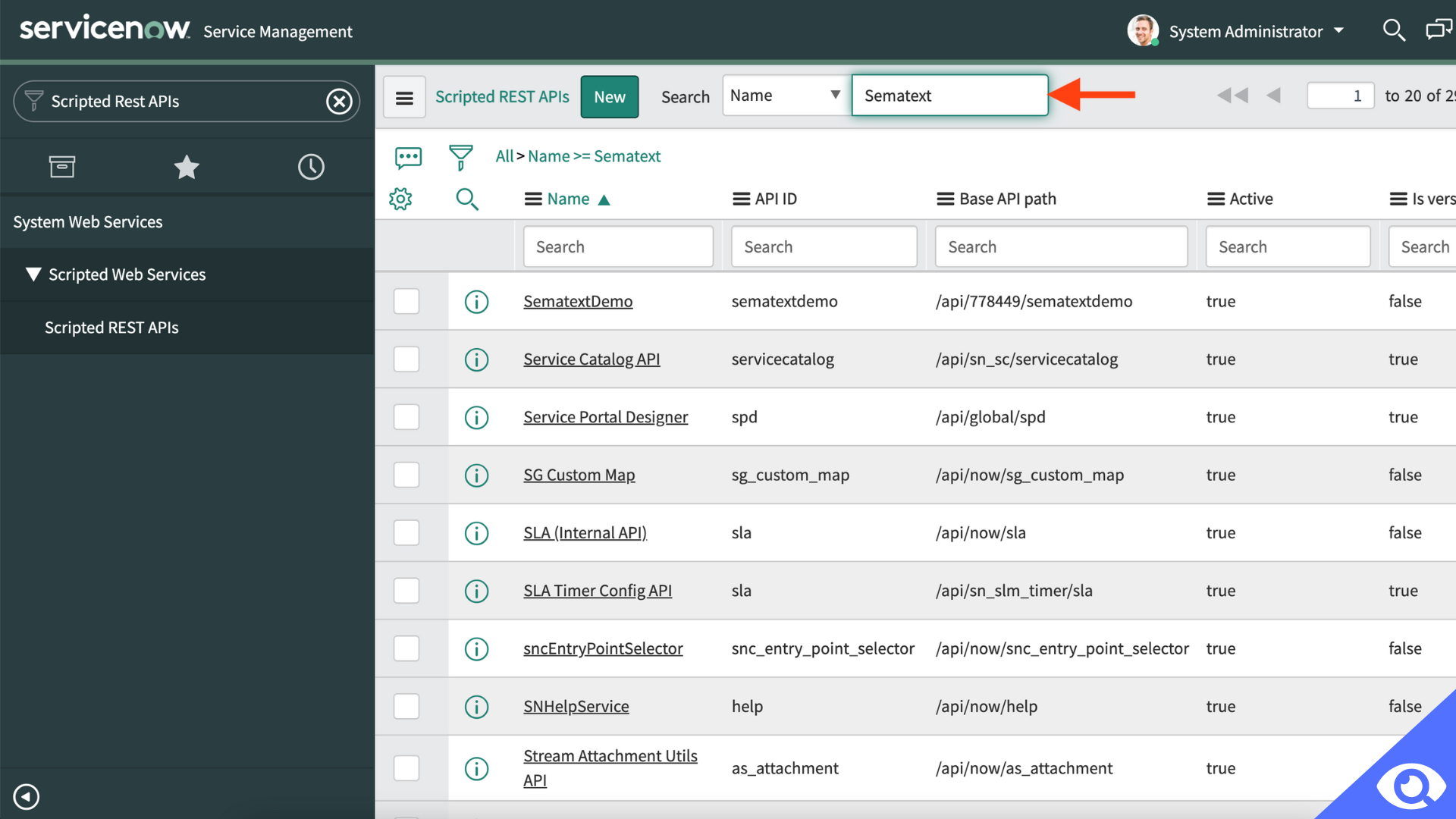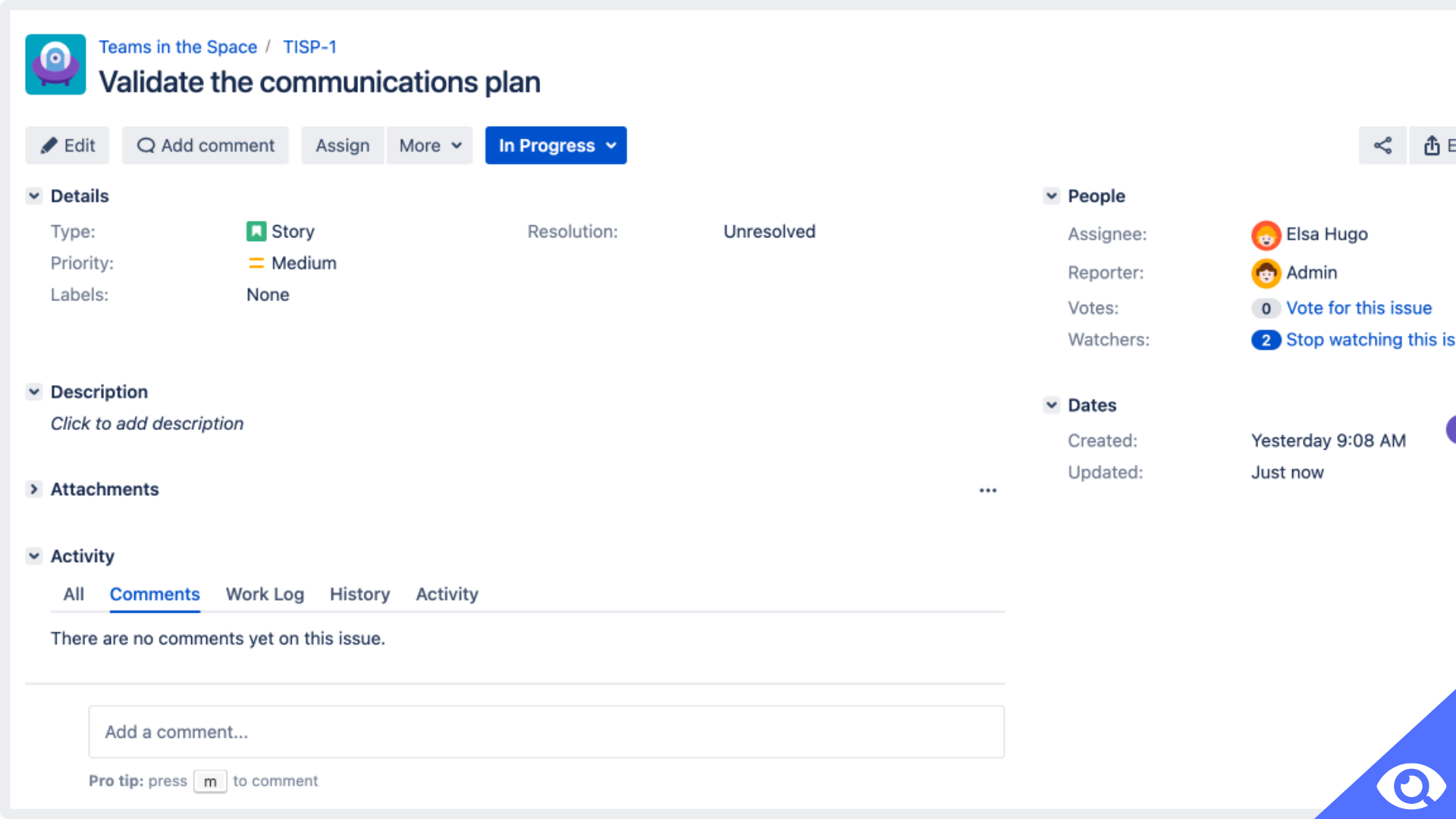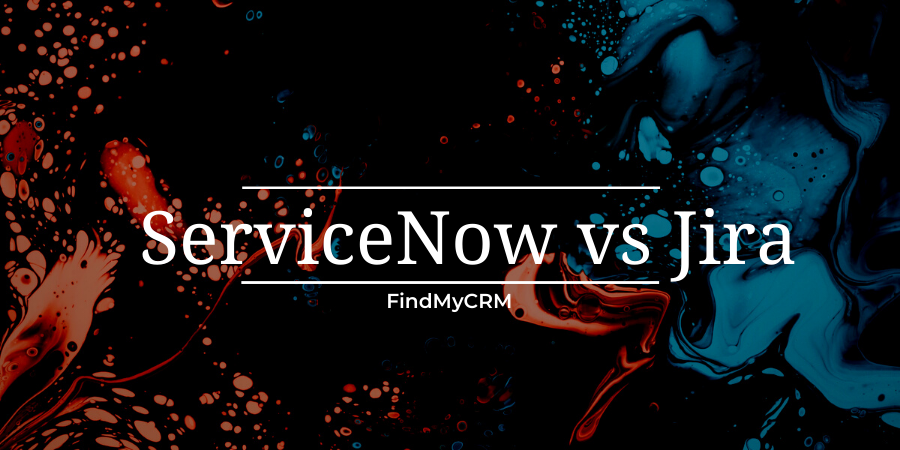What is ServiceNow?

ServiceNow is an enterprise-focused toolkit that allows companies to manage their IT infrastructures, developer operations, hardware and software procurement, internal and external customer management, and more from a single platform. It can be extended via APIs and third-party integrations with other technologies that your company may integrate with or use for other tasks.
What is Jira Service Management?

Jira Service Management is a program that extends the capability of an already installed Jira. It covers tracking client requests and issues, configuration management, change management, and knowledge management for public or internal customers. Jira Service Management integrates effectively with other Atlassian products and services because it is built on top of Jira, but it can also integrate with third-party solutions to supercharge DevOps workflows.
[Related Article: Jira vs Asana]
ServiceNow vs Jira Service Management: Comparison Table
| Criteria | ServiceNow | Jira Service Management |
| Rating | ⭐4.5/5 | ⭐4.5/5 |
| Ease of Use | User-friendly, more enterprise/ITIL-focused UI | Simple and clear user interface |
| ITIL compliant | Yes | Yes |
| Community Support | Available | Available |
| Pricing | Custom pricing model |
|
Comparing ServiceNow vs Jira Service Management: Features
ServiceNow and Jira Service Management both include a wide range of capabilities that cover the complete service management lifecycle, such as workflow management, reporting and dashboards, and more. Let's take a look at some of the main features of each tool.
Features of ServiceNow
ServiceNow's functions, as a pioneering service management platform, include from incident and problem management to change and request management.

Incident Management
ServiceNow provides streamlined workflows for dealing with incidents. Built-in machine learning capabilities provide contextual assistance and speed up resolution.
Problem Management
ServiceNow serves as a central repository for all tickets, giving stakeholders visibility into outstanding issues. It is easier to spot issues and conduct root cause analysis with automated notifications, role-based dashboards, and real-time analytics.
Change Management
ServiceNow makes change less unpleasant and more productive by providing customized change workflows, automatic approval of low-risk changes, and integrated scheduling views.
Self-Service Requests
ServiceNow portals provide intelligent chatbots with natural language understanding to assist users in quickly finding answers using relevant keywords.
Workspaces
Role-based workspaces offer customized UI layouts for various ITSM players. Agent workspaces, for example, might include a consolidated view of all assigned issues, whereas service owners should have immediate access to reports and data to stay on top of emerging trends.
[Related Article: How to Transform CRM Implementation into Processes and Strategy Upgrade]
Features of Jira Service Management
Here are some of the most important features of JSM that your company should know.

Incident Management
Jira Service Management enables development, operations, and customer support teams to cooperate throughout the incident lifecycle, making it easier to keep end users informed and solve issues quickly. Team members communicate with each other directly in JSM via Slack and other channels, so they always have the required information available and don't waste time switching platforms. You can also automatically escalate and assign issues as needed, ensuring that the appropriate team members are notified immediately.
Problem Management
Jira Service Management features a built-in problem management workflow that supports ITIL-recommended activities and is easily customizable to fit the needs of any company or business unit.
Service Request Management
Service request management entails directing requests to the appropriate parties and efficiently completing them. JSM simplifies the entire service request process with user-friendly online client portals, customized forms, and automated workflows.
Reporting and Analytics
Dashboards with customer satisfaction data provide teams with a better understanding of service quality and how to enhance response times and service-level agreements (SLAs). After an incident, you can prepare a post-mortem report to evaluate response efficacy and take preventative measures to avoid similar occurrences.
Knowledge Bases
Customers can use a knowledge library filled with relevant articles and FAQs to fix problems on their own, while internal users can save time resolving common difficulties. Because of machine learning algorithms, related articles appear automatically when end users make inquiries, making self-service significantly simpler.
Contextual Data with Traceability
JSM allows team members to keep relevant items connected so that the complete picture is visible to everyone working on an issue. For example, if many tickets are raised during an incident, you can link them all together. You can also conduct a root cause analysis by creating a new issue linked to an incident.
DevOps Integration
Because of integration with Bitbucket and other DevOps platforms, all code commits and deployments related to a change request can be tracked directly from the JSM interface.
Alerts
You may use JSM to generate alert messages from various systems and personalize them by changing routing rules depending on factors like urgency and on-call scheduling.
Asset Management
JSM allows you to track and manage all of your company's assets. It allows you to connect assets with incidents while enhancing asset quality and reducing downtime.

ServiceNow vs Jira Service Management: Comparing Main Aspects
1. Usability
Jira's web interface is simple and clear— Atlassian clients will feel right at home with its admin console. ServiceNow's web front-end is also very user-friendly, but it is more enterprise/ITIL-focused than Jira Service Management, making it less accessible to smaller companies and IT shops.
2. Learning Curve
ServiceNow is more enterprise-oriented and ITIL-focused, whereas Jira was created to be accessible to IT workers from all types of organizations. As a result, when compared to ServiceNow, Jira Service Management has a more moderate learning curve in store for the average IT specialist.
3. Community Support
ServiceNow offers its users community support options such as a community portal and a product wiki. Atlassian provides a variety of services to its users and platform developers, including a large developer portal and its Answers Q&A website.
4. Customer Support
Atlassian provides a variety of standard and premium support services, including weekday and weekend coverage, specialized support professionals, shortened response windows, and more. For customers in the United States, ServiceNow provides web/email assistance as well as phone support 24 hours a day, seven days a week.
5. Extensibility and API
ServiceNow includes a well-documented REST API for dealing with service instances on its platform. Jira also has a robust REST API for developing add-ons and integrations with other apps.
6. Integrations with Third Parties
Jira's third-party integrations are unparalleled—its Marketplace offers over 2,400 add-ons for improving the platform's capabilities. ServiceNow also provides a variety of integrations—both included and custom-built—via its website.
7. Businesses that Use It
ServiceNow's famous customers include AstraZeneca, Envision Healthcare, Equinix, GE Capital, and Standard Life. Jira is utilized by many of the world's leading companies, including Twitter, Sotheby's, Spotify, BlackRock, and Splunk.

ServiceNow vs Jira Service Management: What Is the Best Option and How Much Does It Cost?
When you purchase a service desk platform, you get just half of the solution for your company's needs. There are also additional costs (time, money, or both) associated with optimizing its usage. As a result, you will want to get the most out of the purchased solution from the start.
Both ServiceNow and Jira Service Management provide a plethora of additional plugins and modules that improve the built-in functionality.
ServiceNow Pricing
ServiceNow provides results-driven solutions to help you transform your business. Its team needs to dig into the details to help your business reach its full potential.
Its custom quotes include:
- A business value assessment for advanced features such as Virtual Agent and DevOps Change Velocity
- Scalable packages for all stages of business growth with ITSM Standard, Professional, and Enterprise
- Flexible pricing customized to your needs
Speak with a ServiceNow representative to get on the path to a custom quote.
Jira Service Management Pricing
Jira Service Management offers four pricing plans:
- Free - $0 for 3 agents, monthly subscription only
- Standard plan - $21 per user per month, billed monthly
- Premium plan - $47 per user per month, billed monthly
- Enterprise plan - contact the sales team
Customers have no limits when accessing Jira services, and they can simply access the customer portal. Customers can review the project level, as well as view, create, and comment on internal issues.
5 Reasons to Select ServiceNow
- You will not outgrow ServiceNow: It has the proven experience to meet demands from the world's largest organizations. It is designed for scale and performance, with 11 global datacenter pairs.
- Extend and innovate across the organization: It is simple to maximize your investment while enhancing the flow of work across many areas of business.
- Dedicated cloud: Customers who use ServiceNow have a dedicated instance in its private cloud. There is no need to use the public cloud to host previously on-premises software.
- Single codebase: Because its solutions share the same codebase, they work effortlessly across a true platform.
- The gold standard in ITSM, and more.

6 Reasons to Choose Jira Service Management
- One unified Jira platform offers smooth cooperation between Dev and IT.
- The federated data model allows teams to function in their own way while staying aligned with their organization.
- A modern approach to ITIL reduces unnecessary feature bloat and provides flexibility to employ only what your team requires.
- A low-code editor and drag-and-drop interface make it easy for teams to get started immediately.
- Intuitive installation reduces the need for tedious upgrade cycles and consultants to configure and maintain workflows.
- Transparent pricing per agent, with no additional fees or surprises for approvers or requesters.
[Related Article: 10 Best Lead Management Software]

ServiceNow vs Jira Service Management: Which One to Choose?
ServiceNow provides solutions for more enterprise-oriented businesses, and the user interface reflects this. Many users may find the ServiceNow system complicated or difficult to use, requiring training for setup and usage. However, ServiceNow offers in-depth solutions not available on other platforms and detailed documentation to assist your company by integrating them into various workflows.
Jira Service Management is a more user-friendly solution than ServiceNow since it connects with Jira, the top developer ticket solution many companies use in day-to-day software development. Because business users may already be familiar with how this system operates, it may require less training than ServiceNow.
If your organization is smaller and already uses Atlassian products, then Jira Service Management is the best solution for your business. Larger companies will want to consider the offering from ServiceNow.

.png?width=140&height=140&name=Noah%20(1000%20x%201000%20px).png)



